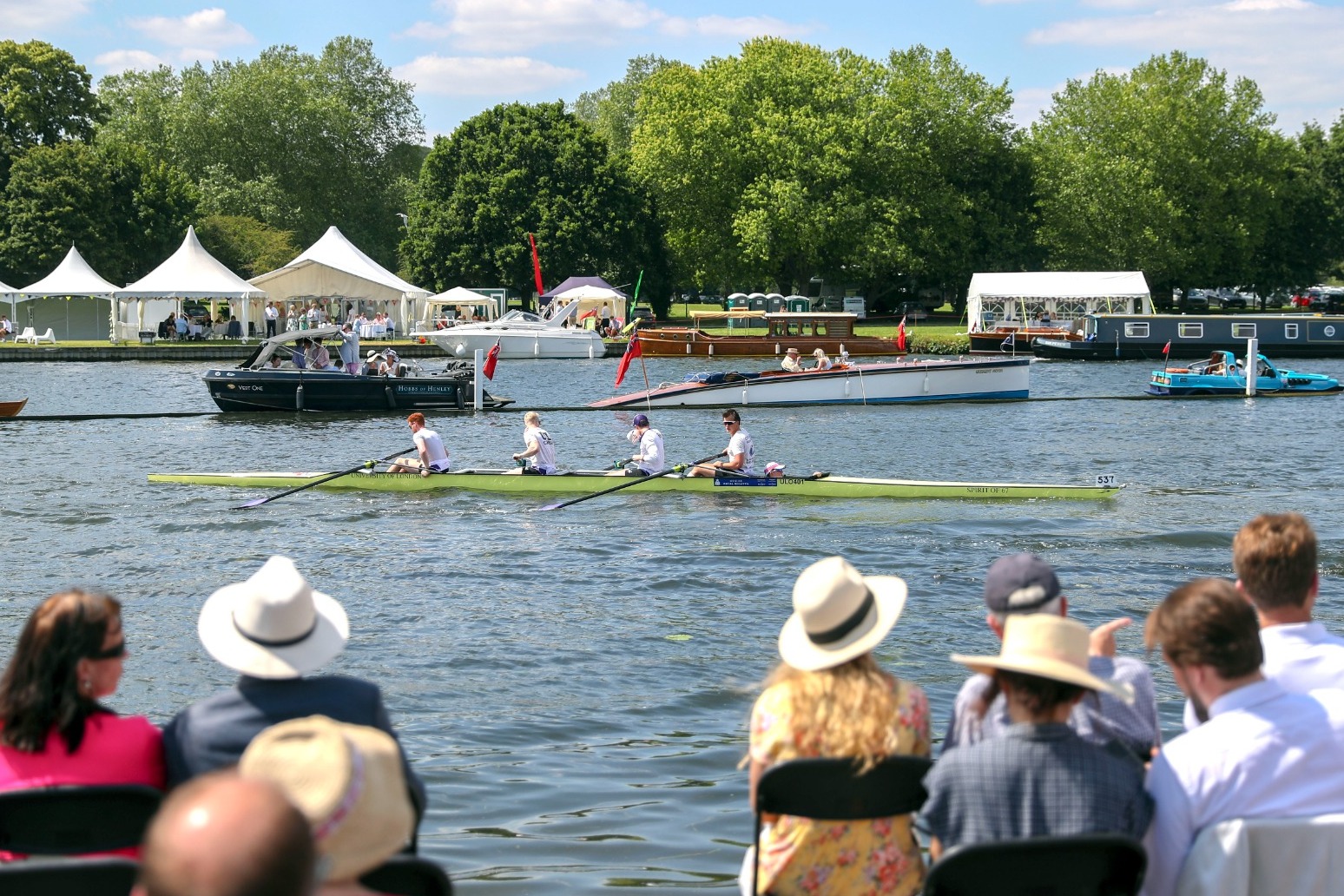
High levels of E.coli have been found along a stretch of the River Thames that will be used for the historic Henley Royal Regatta next week, campaigners said.
The levels of bacteria, which can cause serious infections, were found by the Henley and Marlow River Action group, which is testing the water on the Henley Mile daily from May 23 until July 7.
The group took samples near Fawley Meadows, which is close to a Thames Water combined sewers overflow (CSO) pipe that can discharge untreated sewage directly into the river.
Using a Fluidion World Health Organization verified E.Coli analyser, and results analysed by charity Earthwatch, the group found that nearly half (47%) of the tests taken up to June 25 did not meet the Environment Agency threshold for inland bathing water quality.
To meet the lowest level of the Environment Agency standards, only 10% of tests can fail.
It comes as qualifying races take place on Friday, involving approximately 4,000 rowers.
Thames Water figures showed a lower failure rate for the samples it took every other day between May 15 and June 20 at two sites – one which is 2km upstream and the other which is 5km downstream from the River Action site.
River Action argued that its testing site is on the Henley Mile where the races take place.
It added that its recordings are bound to be higher due to being nearer the CSO pipe and sewage treatment works, compared to upstream and downstream where any discharge would be more dilute.
But Thames Water maintains its results give an accurate picture of the water quality in the Henley Mile and claims that no untreated effluence has been discharged from the nearby treatment works since May 14.
Henley Regatta organisers have included guidance for rowers, written by British Rowing, River Action and The Rivers Trusts, on minimising the risk of illness due to proximity to polluted water.
A similar guidance was issued ahead of the Oxbridge boat race on the Thames in March after River Action found high levels of E.coli in the water by Hammersmith Bridge.
James Wallace, chief executive of River Action said: “As we saw at the recent university Boat Race in London on the River Thames, there is a risk that rowers can become unwell from waterborne pathogens, which not only affects their race but puts their health and sport at risk.”
Mr Wallace blamed the river pollution on Thames Water, adding: “We demand that they stop this deluge of raw sewage, which threatens river users with serious sickness and the river’s biodiversity.
“The new government must get a grip of the water pollution crisis and ensure that water companies, including Thames Water, invest urgently in upgrading wastewater treatment plants and fix their leaky infrastructure before someone becomes seriously ill, or worse.”
Sir Steve Redgrave, former Olympic rower, said: “Today’s findings provide a stark reminder of the impact that sewage pollution is having on our rivers.
“Henley Royal Regatta supports the research undertaken by River Action, which highlights the essential work that needs to be done to improve the cleanliness of our waterways for all to enjoy.”
A Thames Water spokesperson said it saw spikes in E.coli readings in two days in May and two days in June following rainfall, adding that “multiple sources are likely to have contributed to these elevated readings, which could include farming, industry, road runoff and wildlife”.
They said: “We have been conducting testing for E.coli and intestinal enterococci in the river Thames in Henley since mid-May, using specialist contractors to collect samples every other day, at two sites on the river, which are then tested and analysed in our ISO-accredited laboratory.
“What these laboratory tested results show so far is that E.coli levels in the Henley stretch of the Thames are consistently achieving levels the Environment Agency would deem as ‘Good’ for bathing waters, during dry conditions.”
“We need honest and balanced debate that recognises the range of factors impacting river health, rather than an alarmist approach that tries to apportion blame in a misguided way,” they added.
Published: by Radio NewsHub









